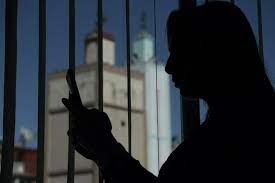AS Pakistan reels from the apocalyptic damage caused by this year’s monsoons, people are mobilizing to help the millions of men, women and children who have been displaced by the floods. Women and girls make up half of these people, but amid the scramble to ensure shelter, food, and medicines for them, their specific needs related to their biological reality are often overlooked.
Not this time, however, thanks to a group of young women — students, mostly — who have started a movement to collect sanitary products for these women and girls, some of whom will face their first period in these months. These groups are raising awareness about period poverty, in a country where not only are women marginalized in the best of circumstances, but where talking about menstruation openly has long been taboo.
It is a fact that half the world menstruates. The other half doesn’t have to think about this fact. While one half of the world must buy products to deal with this — think soap, sanitary pads, special undergarments, painkillers — and have access to clean water and toilets in order to maintain their health during this time, the other half of the world is free of these necessities. While one half of the world deals with pain, low blood pressure, anaemia, and all the effects this may have on their attendance at school or work, the other half is free of this burden.
Male privilege allows our society to be squeamish about the biological realities of women. Puberty, menstruation, fertility, conception, pregnancy and childbirth are seen as women’s issues, not to be discussed publicly or with men or boys present. Not long ago, advertising for sanitary products on television was controversial. Women and girls in Pakistan continue to live with human-created shame over a biological function that is vital to the continuation of life.
Women and girls in Pakistan live with human-created shame over a biological function that is vital to the continuation of life.
Older generations accepted these conventions as normal and necessary. The younger generation is not so accepting. Mahwari Justice, the brainchild of two college students in Lahore, Bushra Mahnoor and Anum Khalid, sends menstrual products out to women and girls affected by the floods. Private donations enable them to purchase and pack menstrual kits for the flood affectees. They regularly put out calls on social media for volunteers in different towns and cities, and Mahnoor has been doing media interviews with international news outlets, even though she wrote on Twitter that her family considers her advocacy “shameful”.
But Mahnoor and Khalid carry on, haunted by the woman who called and said she’d been using leaves during her period. Other displaced women end up staining the only set of clothing they have been left with, having lost everything else in the flooding.
Even before the floods, rural women used cloths, newspapers or rags to manage their periods. A luxury tax on sanitary napkins means they’re too expensive for most girls or women outside the cities of Pakistan. This period poverty, coupled with general ignorance about menstruation has kept women and girls in the dark ages, even in the 21st century.
When Mahwari Justice began their operations, a patronising debate sprung up about whether period products were a luxury or a necessity. “Why don’t you distribute shaving kits to men?” wrote one disgruntled Twitter user, displaying a lack of sensitivity that is typical of men who have never had to even consider what having a period means. Others said that since rural women did not use sanitary napkins under normal circumstances, forcing them to use these products was a form of imperialism enacted on them by the elite.
It’s true that women in rural areas of Pakistan are used to using cloths that they wash and reuse, the most ecologically sound manner of dealing with periods. But emergencies necessitate having to use alternate methods for period hygiene. In the floods, there is no clean water with which to wash the cloths. Adding biological waste to the already filthy stagnant water will just increase the spread of disease, the “second disaster” that the WHO has warned will hit Pakistanis now that the flooding has done its worst.
“We ask the women what they need and what they are comfortable with,” says Mahnoor. Kits may contain sanitary pads, underwear, cloth towels, cotton pads, and soap, depending on what the women themselves request. There is a small diagram to explain how to use these products. So far they have sent out more than 20,000 of these kits, and plan to keep going for as long as women need them. Other groups and organisations have followed suit, distributing period packs and pregnancy packs for women who are ready to give birth in the most dangerous conditions imaginable.
In more established shelters, like the new tent city established by Roshan Academy in Karachi to house IDPs for a longer period of time, washing and reusing cloth pads will be possible with a steady supply of clean water and toilets. Maria Taqdees of Hunar Ghar in Karachi has taught low-income women to make cloth pads on sewing machines and is making them available to relief groups. Across Pakistan women are answering the call to help other women, and not leave them behind in male-led relief efforts.
Relief groups led by women are taking menstrual supplies to the female IDPs and holding workshops explaining how they work and how they can be disposed of safely. Using sanitary napkins with belts is something that the rural women have been willing to try. Sensitivity and respect are very important to help women survive these times with dignity. But now may be the best time to teach these women and girls about menstrual hygiene and about how their bodies work, empowering them in unexpected ways.
Source: Dawn (Editorial) (writer: Bina Shah)




